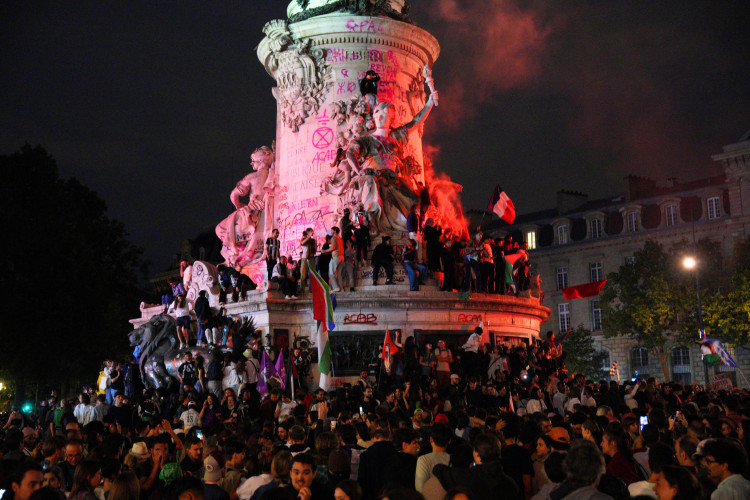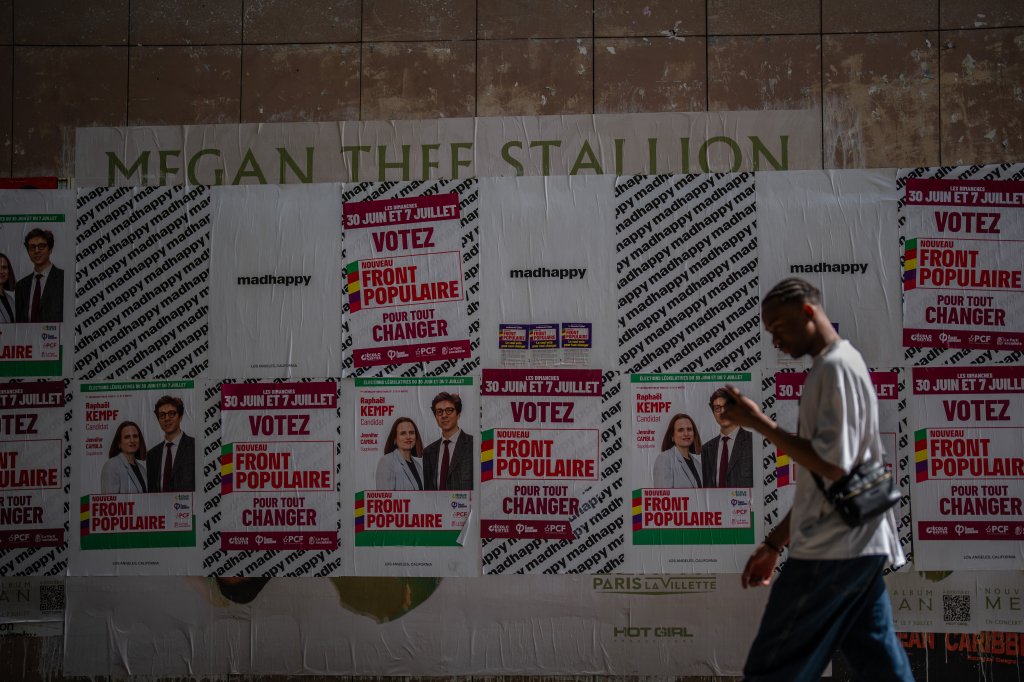The French election results of 7 July have plunged the country into a state of uncertainty. While political strategies have successfully fended off the far-right, the country now faces a likely deadlock and at least a year of political instability. In Europe, this will weaken the country’s influence, pushing President Macron into a more challenging stance.
No Majority in a Split Parliament
On 9 June, despite hopes for a renewed enthusiasm in the European elections, thanks to Macron’s profile as a champion for Europe, the party, led by MEP Valerie Hayer, lost 10 seats, while the far-right Rassemblement National (RN) obtained a historical 30 seats. Minutes after the announcement of the French results to the European elections, Macron called for snap elections of national parliament.
On 7 July, the results showed the alliance of left-wing parties with Nouveau Front Populaire (NFP) in the lead with a narrow majority of seats, followed by Macron’s liberal and centre-right group, Ensemble, leaving the far-right Rassemblement National and its allies (RN) as only the third largest group in parliament. The Conservatives (LR) saw support divided between the likes of RN and other parties, and consequently came in fourth place. All groups remain far from the 289-seats of the absolute majority. The results surprised everyone, with the RN coming in third despite winning over 30% of votes in the first round of voting, as well as polls anticipating the group could get close to an absolute majority.
A Technocratic Government in Sight
With the Parliament split into three major blocs, forming a government coalition appears to be a daunting task. The NFP, Ensemble, and RN are all far from a solid majority and have opposing visions on many points.
While the NFP started looking among its ranks for an acceptable figure to take the role of Prime Minister, internal division makes the task difficult. Adding to that, a Prime Minister would need to form a government that could avoid parliamentary censorship. At present, it seems difficult to imagine any government with any real ambitions being able to take over.
The possibility of a technocratic government, handling only the day to day, seems the more likely scenario. Outgoing Prime Minister Attal has already expressed willingness to stay to ensure continuity until a new government is formed. Alternatively, Macron could appoint another Prime Minister with a less political profile.
Another solution could come from a broad coalition between the NFP and some of Macron’s Ensemble in an attempt to avoid a complete deadlock. However, several figures of the liberal groups have opposed working with the more radical left side of the NFP, La France Insoumise (LFI), which is also its biggest delegation. The leader of LFI, Jean-Luc Mélenchon, also rejected the possibility, expressing that LFI would apply the NFP programme, and only that programme, in its entirety. However, many parts of the programme are incompatible with Macron’s politics. It is hard to imagine that the President’s group would agree to undo some of the work of the last mandate. Without LFI, the groups would also not have the sufficient numbers for a majority.
With such uncertainty, it is clear that France will remain in a state of high political instability for at least for a year until a new snap election can be called again. This position will see either a weak or a highly technocratic government, unlikely to enact new legislations.
What will be Macron’s legacy in Brussels?
As the President remains in place, and constitutionally has the international role, Macron will continue to be part of international politics, including the European Council. However, his ability to influence political agendas will be significantly weakened. For some, the situation marks the end of France’s role as one of the motors of European integration.
If a government coalition gets appointed, it will be able to decide on the political line inside the Council of the EU. Outgoing Deputy Minister for Europe, Jean-Noel Barrot, has stressed that on some topics, such as defence and industrial policy, convergences exist between the centre-left and centre-right parties. However, a weak government will likely also struggle to retain the decisive influence that France has had on certain topics. With the likelihood of a government formation taking a lot of time, it is unsure if France’s stance in the Council will change in the short term.
On the Commission side, the appointment of the French Commissioner is, legally-speaking, also a prerogative of the President, and Macron has already announced his intention to re-appoint Thierry Breton, the current Commissioner for Internal Market. Although the RN had been vocal against Breton’s appointment, the party will not have the political influence it had hoped for. Additionally, while the NFP could aim to propose another candidate, it is unlikely that they will have the time to do so before the Commission formally takes its place.








